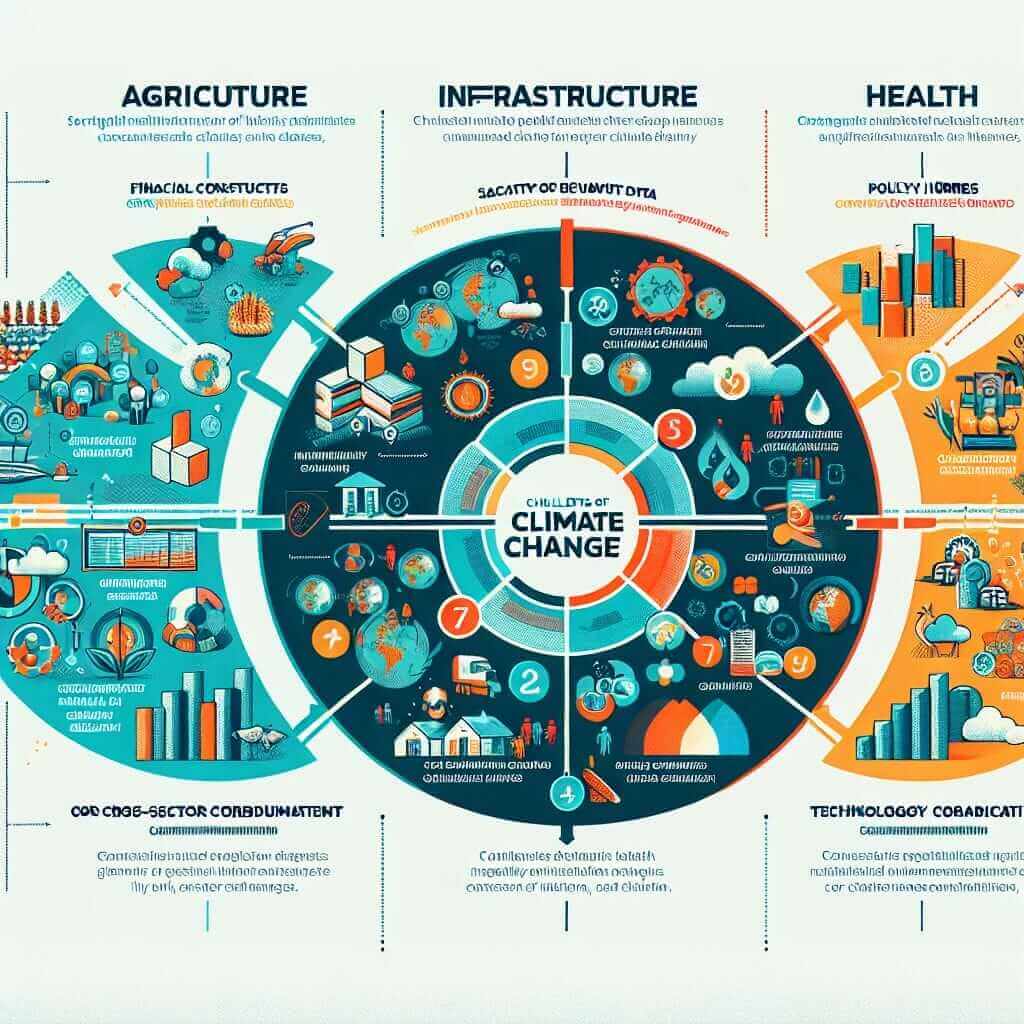The IELTS Reading test assesses a wide range of reading skills, including the ability to understand the general gist, main ideas, details, and inference, as well as recognizing the writer’s opinions, attitudes, and purpose. In recent years, topics regarding climate change have become increasingly popular in IELTS exams due to their relevance and global significance. This article aims to provide a comprehensive reading passage based on the keyword “What are the challenges of managing climate change adaptation?” designed to resemble actual IELTS reading tests closely. Understanding the frequency of such themes can help predict future examination topics and better prepare candidates.
Reading Passage: Challenges of Managing Climate Change Adaptation
Medium Text
Climate change presents one of the most pressing global challenges of our time. Adaptation to climate change involves making adjustments in social, economic, and environmental practices in response to observed or expected climate stimuli and their effects. While mitigation focuses on reducing greenhouse gas emissions, adaptation seeks to manage the risks associated with the changes already in motion. Managing climate change adaptation is fraught with multi-faceted challenges which extend across various sectors and regions.
Financial Constraints: One of the foremost challenges in managing climate change adaptation is financial constraints. Implementing adaptation strategies requires substantial investment in infrastructure, technology, and research. Many developing countries, which are often the most vulnerable to climate change, do not have the financial resources to invest in such measures. International funding mechanisms, like the Green Climate Fund, have been established to support these efforts, but the demand far exceeds the supply.
Lack of Data and Information: Another significant hurdle is the lack of accurate data and information. Effective adaptation strategies require precise climate projections and risk assessments, which are often unavailable or unreliable, particularly in developing regions. Without reliable data, it is difficult to plan and implement measures that address specific vulnerabilities.
Institutional and Policy Barriers: Institutional and policy barriers also impede adaptation efforts. In many regions, there is a lack of coherent policies and regulatory frameworks that support climate adaptation. Inconsistent policies can lead to fragmented efforts and inefficiencies. Moreover, institutional inertia and resistance to change can slow down the implementation of necessary measures.
Community Engagement and Public Awareness: Achieving effective climate adaptation also hinges on the engagement of local communities and raising public awareness. Local knowledge and participation are vital in crafting adaptation strategies that are socially acceptable and sustainable. However, there is often a disconnect between policymakers and local communities, resulting in resistance or ineffective adaptation measures.
Technological Limitations: Technological innovations play a crucial role in climate adaptation; however, the transfer and implementation of such technologies can be challenging. Many countries lack the technical expertise and infrastructure needed to deploy adaptive technologies effectively.
Cross-sector Coordination: Addressing climate change impacts requires a coordinated approach across multiple sectors, including agriculture, water resources, health, and urban planning. However, achieving cross-sector coordination can be complex due to differing priorities, governance structures, and resource constraints.
Uncertain Future Projections: The inherent uncertainty in climate projections adds another layer of difficulty in managing adaptation. Climate models offer a range of possible futures, making it challenging to decide on the best adaptation strategies. Preparing for a range of scenarios requires adaptive management practices which are flexible and iterative.

Sample Questions
Multiple Choice:
-
What is one primary challenge in managing climate change adaptation as mentioned in the passage?
- A) Political support
- B) Financial constraints
- C) Cultural differences
- D) Linguistic barriers
-
Why is the lack of data and information a significant hurdle?
- A) It reduces public interest.
- B) It increases governmental support.
- C) It hampers effective planning and implementation.
- D) It promotes community engagement.
True/False/Not Given:
- Many developed countries struggle with financial resources for climate adaptation. (True/False/Not Given)
- Technological innovations are irrelevant in climate change adaptation. (True/False/Not Given)
Matching Headings:
Match the following headings to the correct paragraph:
- Technological Innovations
- Financial Problems
- Community Involvement
- Lack of Policy Framework
Sentence Completion:
Complete the following sentences with a word from the text:
- Effective adaptation strategies require precise climate ___ and risk assessments.
- Achieving effective climate adaptation hinges on local ___ and raising public awareness.
Short-answer Questions:
- What has been established to support financial needs in climate adaptation?
- What is the main reason behind the difficulty in achieving cross-sector coordination?
Answer Keys
Multiple Choice:
- B) Financial constraints
- C) It hampers effective planning and implementation.
True/False/Not Given:
- Not Given
- False
Matching Headings:
- Paragraph 6
- Paragraph 2
- Paragraph 4
- Paragraph 3
Sentence Completion:
- projections
- knowledge
Short-answer Questions:
- Green Climate Fund
- Differing priorities, governance structures, and resource constraints
Common Mistakes
- Overlooking specific details mentioned in the passage.
- Confusing information given in the question with the text.
- Misinterpreting the overall context leading to incorrect answers.
Vocabulary
- Adaptation (n) /ˌædæpˈteɪʃən/ – the process of changing to suit different conditions.
- Financial Constraints (n phrase) – limitations on resources or funds.
- Inertia (n) /ɪˈnɜːʃə/ – resistance to change.
- Iterative (adj) /ˈɪtərətɪv/ – involving repetition and refinement.
Grammar Focus
Relative Clauses – used to add extra information about a noun in the sentence.
-
Example: “Implementing adaptation strategies, which require substantial investment, is a significant challenge.”
-
Used for adding descriptive details: “Climate models, which offer a range of possible futures, make planning difficult.”
Tips for High Reading Score
- Practice Regularly: Familiarize yourself with different question types and topics.
- Skim and Scan: Develop techniques for quickly locating information.
- Improve Vocabulary: Enhance your vocabulary related to common IELTS topics.
- Take Mock Tests: Simulate exam conditions to build stamina and time management skills.
- Review Mistakes: Learn from errors by understanding why answers are incorrect.
By adhering to these guidelines and actively engaging with practice materials, candidates can significantly improve their reading skills and overall IELTS performance.